Last Updated on October 17, 2024 by admin
Imat 400 INTRODUCTION
Imat 400mg, known generically as Imatinib, is a targeted therapy that has significantly transformed the landscape of oncology since its approval by the U.S. Food and Drug Administration (FDA) in 2001. Developed by Novartis, this revolutionary medication primarily targets specific molecular pathways that contribute to the growth and proliferation of cancer cells. Imat 400mg is primarily used in the treatment of chronic myeloid leukemia (CML) and gastrointestinal stromal tumors (GIST), both of which exhibit distinct genetic mutations that make them responsive to this therapy.
The development of Imat 400mg marked a significant milestone in cancer treatment, shifting the paradigm from traditional chemotherapy to more targeted approaches. CML, a type of cancer characterized by the accumulation of abnormal white blood cells, is commonly associated with the BCR-ABL fusion gene, a result of a chromosomal translocation. Imatinib works by inhibiting the specific tyrosine kinase proteins produced by this genetic mutation, effectively blocking the signals that promote cancer cell proliferation. Thus, Imat 400mg has not only improved survival rates among patients with CML but has also substantially enhanced their quality of life.
In addition to treating CML, Imat 400mg is effective against GISTs, which are tumors of the digestive tract. Approximately 95% of GISTs harbor mutations in the KIT gene, which encodes for a receptor tyrosine kinase. Imatinib’s targeted mechanism inhibits the activity of this mutated protein, providing a vital treatment option for individuals diagnosed with this rare form of cancer.
As research continues, Imat 400mg usage has expanded beyond these primary indications, and ongoing studies aim to clarify its role in other malignancies. The introduction of Imat 400mg exemplifies the growing significance of personalized medicine, paving the way for further advancements in targeted therapies within the field of oncology.
Uses of Imat 400mg
Imat 400mg, also known by its generic name imatinib, is primarily employed in the treatment of specific types of cancer, particularly chronic myeloid leukemia (CML) and gastrointestinal stromal tumors (GISTs). Characterized by its mechanism as a tyrosine kinase inhibitor, Imat 400mg functions by targeting the abnormal proteins produced by cancer cells, thus hindering their growth and proliferation. This targeted therapy has revolutionized cancer treatment, offering a more nuanced approach compared to traditional chemotherapy, which can affect both cancerous and healthy cells alike.
In addition to CML and GISTs, Imat 400mg is also utilized for other malignancies such as acute lymphoblastic leukemia (ALL) when caused by the Philadelphia chromosome, along with certain types of dermatofibrosarcoma protuberans (DFSP). The efficacy of Imat 400mg in these conditions stems from its ability to block the activity of BCR-ABL protein, which is often responsible for driving cellular transformation in these cancers. The drug received accelerated approval from the U.S. Food and Drug Administration (FDA) in 2001 based on early data demonstrating its promise in treating patients with CML.
Furthermore, Imat 400mg can also be employed in conjunction with other therapies to enhance treatment outcomes. Its use alongside chemotherapy or radiation may bolster the effectiveness of those treatments, providing a multi-faceted approach to managing cancer. Careful consideration is given to the combination therapies to ensure they work synergistically and mitigate potential adverse effects. As a pivotal drug in oncology, Imat 400mg has not only transformed the prognosis for many patients but continues to play a crucial role in ongoing research, aimed at expanding its use to other related conditions.
Directions for Use
When prescribed Imat 400mg (imatinib), it is critical to adhere to the specific dosing guidelines provided by your healthcare provider. This medication is usually taken once daily; however, depending on individual circumstances, such as the type of cancer being treated or the patient’s overall health status, adjustments may be necessary. Typically, the starting dose for adults with chronic myeloid leukaemia (CML) is 400 mg per day, while patients with gastrointestinal stromal tumors (GIST) may begin with doses ranging from 400 mg to 800 mg daily. It is essential to follow the exact dosage recommendations to optimize therapeutic benefits.
Imat 400mg can be taken with or without food, but taking it with a meal may help to minimize gastrointestinal side effects. When taking this medication, it is advised to swallow the tablets whole with a glass of water; they should not be crushed or chewed, as this may affect the medication’s efficacy. For individuals who have difficulty swallowing the tablets, the medication can also be dissolved in a glass of water and then consumed immediately. This method ensures that the full dose is received while potentially easing swallowing concerns.
Moreover, it is important for patients to communicate regularly with their healthcare provider regarding any changes in their condition or side effects experienced while using Imat 400mg . Dosage may need to be adjusted based on the patient’s response to treatment, potential side effects, or interactions with other medications. Regular blood tests may be required to monitor the drug’s efficacy and to ensure that it is not adversely affecting the patient’s health. Adhering to these guidelines helps to maximize the effectiveness of Imat 400mg while minimizing risks associated with incorrect usage.
Benefits of Imat 400mg
Imat 400mg , known generically as imatinib, has emerged as a groundbreaking therapy for patients diagnosed with specific cancers, particularly chronic myeloid leukemia (CML) and gastrointestinal stromal tumors (GISTs). One of the foremost benefits of Imat 400mg is its ability to significantly improve survival rates among individuals with these cancer types. Clinical studies have demonstrated impressive outcomes, with a notable increase in overall survival as well as a marked reduction in disease progression.
This medication functions as a targeted therapy, which means it specifically targets cancer cells while sparing healthy cells. This mechanism limits the side effects often associated with traditional chemotherapy, enhancing patients’ overall quality of life. Many patients report improved energy levels, better appetite, and a gradual return to daily activities, which contribute to a more favorable living experience during treatment.
Anecdotal evidence from numerous patients suggests that Imat 400mg can facilitate a more manageable cancer treatment journey. Individuals taking this medication often share positive feedback about how it has not only extended their life but also allowed them to engage in family activities and work, thereby enriching their personal and professional lives. Furthermore, clinical trials have consistently shown that longer durations of Imat 400mg therapy correlate with improved long-term outcomes, promoting the notion that early intervention can be instrumental in achieving the best possible results.
Additionally, Imat 400mg is relatively easy to administer, usually taken as an oral tablet, making it more convenient compared to some intravenous therapies. This ease of use helps to ensure treatment adherence, crucial for maximizing the drug’s therapeutic effects.
The benefits of Imat 400mg extend beyond extending survival; they encompass aspects of daily living, empowering patients in their fight against cancer. As ongoing research continues to validate its efficacy, Imat 400mg remains a vital component in the contemporary landscape of cancer treatment options.
Storage of Imat 400mg
Proper storage of Imat 400mg is crucial to maintain its efficacy and safety. It is essential to store this medication at room temperature, ideally between 20°C to 25°C (68°F to 77°F). Temperature fluctuations can negatively impact the stability of the drug, rendering it ineffective. Therefore, patients should avoid placing Imat 400mg in areas susceptible to extreme temperatures, such as above kitchen stoves or in direct sunlight.
In addition to temperature considerations, protecting Imat 400mg from light exposure is important. The medication should be kept in its original container, which is designed to shield it from light. Keeping the bottle tightly closed when not in use will help safeguard the contents from moisture and light, preserving the quality of the medication.
Securing Imat 400mg from children and pets is a significant safety precaution. To prevent accidental ingestion, it is advisable to store the medication in a locked cabinet or a place out of reach of children and animals. Doing so reduces the risk of potential harm and ensures that the medication is used as intended.
For those with expired or unused Imat 400mg , disposal guidelines are critical to ensure safety and environmental care. It is recommended to return the medication to a pharmacy that offers take-back programs. If such programs are unavailable, patients should follow local regulations for proper disposal. Flushing Imat 400mg down the toilet is typically discouraged, as it may harm the water supply.
Adhering to these storage recommendations can significantly contribute to the safe use of Imat 400mg , enhancing both its effectiveness and the health and safety of those around the patient. Keeping these guidelines in mind will help ensure that the medication remains potent and secure throughout its usage period.
Medicinal Benefits of Imat 400mg
Imat 400mg , known generically as imatinib, is a groundbreaking medication that plays a critical role in targeted cancer therapy, particularly for conditions such as chronic myeloid leukemia (CML) and gastrointestinal stromal tumors (GISTs). One of the primary medicinal benefits of Imat 400mg is its ability to selectively inhibit specific tyrosine kinases. These enzymes are integral to the signaling pathways that regulate cell division and survival. In many cancers, these pathways become dysregulated, leading to uncontrolled cell proliferation. By blocking the activity of these kinases, Imat 400mg effectively hinders the growth of cancerous cells, providing a more targeted approach compared to traditional chemotherapy, which indiscriminately affects all rapidly dividing cells. This targeted mechanism not only enhances therapeutic efficacy but also minimizes collateral damage to healthy tissues.
Moreover, studies have demonstrated that Imat 400mg significantly improves overall survival rates for patients with CML. Unlike standard chemotherapy, which can lead to numerous side effects due to its lack of discrimination between normal and cancer cells, Imat 400mg offers a more favorable side-effect profile. Common side effects associated with traditional chemotherapy, such as hair loss, severe nausea, and weakened immunity, are often less pronounced in patients treated with Imat 400mg . This improvement in quality of life is a critical consideration for oncologists when developing treatment plans.
In addition to its role in CML and GISTs, research continues to explore Imat 400mg effectiveness against other malignancies by targeting different variants of tyrosine kinases. The ongoing advancements in our understanding of cancer biology and the role of targeted therapies like Imat 400mg underscore its significance in modern oncology. As a result, Imat 400mg represents a significant milestone in cancer treatment, shifting the focus from traditional, broad-spectrum approaches to more specific and effective strategies that enhance patient outcomes.
Drug Warnings and Interactions
When considering the use of Imat 400mg (Imatinib), it is essential for patients to be aware of specific warnings and precautions associated with this medication. Imat 400mg is primarily utilized for treating certain types of cancers, including chronic myeloid leukemia (CML) and gastrointestinal stromal tumors (GISTs). However, its use may be contraindicated in certain populations. For instance, individuals with a known hypersensitivity to Imatinib or any of the formulation’s excipients should avoid this drug. Additionally, patients with severe liver dysfunction or those with a history of certain heart conditions must exercise extra caution.
Regular monitoring of blood counts is necessary, as Imat 400mg can lead to a decrease in white blood cell counts, thereby increasing the risk of infection. Furthermore, it is important to assess liver function periodically since the medication can induce liver enzyme abnormalities. Patients should report any unusual symptoms such as jaundice, dark urine, or persistent nausea to their healthcare provider immediately.
Drug interactions also pose significant considerations for patients taking Imat 400mg . It is vital to inform healthcare providers of all medications, supplements, and herbal products being used to mitigate the risk of adverse interactions. Some medications, particularly those that affect liver enzymes (cytochrome P450), can influence Imat 400mg concentrations in the body. For example, inhibitors like ketoconazole may increase Imatinib levels, potentially enhancing toxicity, while inducers such as rifampin could decrease its effectiveness. Additionally, the concomitant use of anticoagulants, certain antidepressants, and chemotherapeutic agents should be approached with caution to avoid unintended effects.
In light of these potential drug interactions and warnings, patient education remains paramount. It is essential for patients to maintain open lines of communication with their healthcare providers to ensure a safe and effective treatment regimen while on Imat 400mg .
Common Side Effects of Imat 400mg
Imat 400mg , known generically as imatinib, is a targeted therapy agent utilized primarily in the treatment of certain cancers, particularly Chronic Myeloid Leukemia (CML) and gastrointestinal stromal tumors (GISTs). Despite its effectiveness, patients may experience a range of side effects while undergoing treatment. Understanding these common side effects and their management is crucial for individuals taking Imat 400mg .
Among the most frequent side effects reported are nausea, fatigue, and fluid retention. Nausea can be particularly bothersome; it is advisable for patients to take their medication with food to help alleviate this symptom. Staying hydrated and consuming smaller, more frequent meals may also mitigate discomfort. Fatigue is another prevalent issue that can affect the quality of life. Patients are encouraged to engage in light physical activity, as this may help improve energy levels. If fatigue becomes severe, consulting a healthcare provider is recommended.
Fluid retention can cause swelling, particularly around the eyes and ankles. To manage this, patients should monitor their salt intake and discuss potential diuretic medications with their healthcare professional if swelling persists. Other common side effects include diarrhea and skin reactions such as rashes or itching. Maintaining good hydration, using gentle skin care products, and avoiding known irritants can help manage these conditions. Regular communication with healthcare professionals is important to address these side effects promptly.
It is essential for patients on Imat 400mg to monitor their health and report any severe or persistent side effects to their healthcare provider. Regular blood tests are also necessary to monitor the impact of the drug on blood counts and liver function. Imat 400mg can lead to more serious complications, so proactive management and prompt medical attention when needed are vital for maintaining the effectiveness of the treatment and ensuring patient safety.
Safety Advice and Dietary Considerations
When prescribed Imat 400mg (imatinib), it is crucial for patients to adhere to provided safety guidelines to ensure the medication’s optimal effectiveness. One of the foremost safety recommendations is to take Imat 400mg exactly as directed by a healthcare professional. This includes adhering to the prescribed dosage, timing, and whether to take the medication with food or on an empty stomach, as these factors can significantly influence the drug’s absorption and efficacy.
Moreover, individuals undergoing treatment with Imat 400mg should regularly monitor their health status with their healthcare provider. Regular blood tests may be necessary to assess the drug’s impact on liver function and blood cell counts. Patients should communicate any side effects experienced during treatment, such as nausea, fatigue, or swelling, as these may necessitate adjustments in their treatment regimen.
In addition to medication adherence, adjusting lifestyle habits can further enhance treatment response. Engaging in regular physical activity, maintaining a balanced diet rich in fruits, vegetables, and whole grains, and managing stress through relaxation techniques can contribute to overall health and may bolster the effectiveness of Imat 400mg . However, caution should be exercised regarding dietary choices, as certain foods can interfere with the drug’s absorption. For instance, grapefruits and grapefruit juice are known to affect the metabolism of many medications, including Imat 400mg , potentially leading to increased side effects or decreased efficacy. It is advisable for patients to discuss any specific dietary needs or restrictions with their healthcare team to avoid potential interactions.
Ultimately, understanding the impact of diet and lifestyle on Imat 400mg treatment is essential for achieving the best possible outcomes. Adhering to safety guidelines and making informed dietary decisions will not only facilitate the effectiveness of the medication but also enhance overall well-being during the treatment process.
Treating Chronic Myeloid Leukemia (CML)
Chronic myeloid leukemia (CML) is a type of cancer that affects the blood and bone marrow. Imat 400mg Tablet has been proven to be highly effective in treating CML by inhibiting the abnormal protein produced by the Philadelphia chromosome, which is responsible for the uncontrolled growth of cancer cells. With Imat 400mg Tablet, patients can achieve remission and lead a normal life.
Managing Gastrointestinal Stromal Tumors (GIST)
Gastrointestinal stromal tumors (GIST) are rare tumors that develop in the digestive system. Imat 400mg has shown remarkable results in managing GIST by blocking the signals that promote tumor growth. This medication has significantly improved the prognosis for patients with GIST, offering them a chance at a longer and healthier life.
Treating Dermatofibrosarcoma Protuberans (DFSP)
Dermatofibrosarcoma protuberans (DFSP) is a rare type of skin cancer that usually affects the deep layers of the skin. Imat 400mg Tablet has emerged as a breakthrough treatment for DFSP, providing patients with a non-invasive option that can effectively shrink or eliminate tumors. Its targeted approach minimizes damage to healthy skin, resulting in better cosmetic outcomes.
Other Types of Cancer
In addition to CML, GIST, and DFSP, Imat 400mg Tablet has shown promise in treating other types of cancer, including acute lymphoblastic leukemia (ALL), myelodysplastic/myeloproliferative diseases (MDS/MPD), and hypereosinophilic syndrome (HES). The versatility of Imat 400mg Tablet makes it a valuable weapon in the fight against cancer.
Imat 400 SALT COMPOSITION: Imatinib mesylate (400mg)
USES OF IMAT 400
- Blood cancer (Chronic myeloid leukaemia)
- Blood cancer (Acute lymphocytic leukemia)
- Gastrointestinal stromal tumour
Imat 400 Table Imatinib mesylate (400mg) tablet is primarily used in the treatment of certain types of cancer, including chronic myeloid leukemia (CML), gastrointestinal stromal tumors (GIST), and dermatofibrosarcoma protuberans (DFSP). It is also used to prevent the recurrence of cancer after surgery.
BENEFITS OF IMAT 400
- In Blood cancer (Chronic myeloid leukaemia)
Blood cancer, also called leukemia, is a cancer of the blood-forming tissues, that decreases the body’s ability to fight infection. Imat 400 Tablet kills or stops the growth of cancer cells and also prevents the multiplication of cancer cells. It is a potent and very toxic medicine and you should discuss the risks and benefits with your doctor. You should avoid drinking alcohol while having this treatment and drink plenty of water to stay hydrated.
IMAT 400 Medicinal Benefits
The medicinal benefits of Imat 400 Tablet Imatinib mesylate (400mg) tablet are significant. It helps in inhibiting the growth of cancer cells by targeting specific proteins that are responsible for their abnormal growth. By blocking these proteins, the medication helps to slow down or stop the progression of cancer, thereby increasing the chances of remission and improving overall survival rates.
IMAT 400 Directions for Use
It is important to follow the directions provided by your healthcare provider when taking Imat 400 Tablet Imatinib mesylate (400mg) tablet. The usual recommended dose is one tablet taken once or twice daily, depending on the specific condition being treated. The tablet should be taken with a meal to reduce the risk of stomach upset. Do not alter the dosage or stop taking the medication without consulting your healthcare provider.
IMAT 400 Drug Warnings
Before starting treatment with Imat 400 Tablet Imatinib mesylate (400mg) tablet, inform your healthcare provider about any pre-existing medical conditions, allergies, or medications you are currently taking. This will help your healthcare provider determine if the medication is suitable for you and adjust the dosage if necessary.
IMAT 400 Drug Interactions
Imat 400 Tablet Imatinib mesylate (400mg) tablet may interact with certain medications, including but not limited to warfarin, simvastatin, and antacids. It is important to inform your healthcare provider about all the medications you are taking to avoid any potential drug interactions.
IMAT 400 -Drug Interactions Checker List
For a comprehensive list of potential drug interactions with Imat 400 Tablet Imatinib mesylate (400mg) tablet, consult your healthcare provider or use a reliable drug-drug interactions checker tool. This will help ensure the safe and effective use of the medication.
IMAT 400 Safety Advice
When taking Imat 400 Tablet Imatinib mesylate (400mg) tablet, it is important to follow the safety advice provided by your healthcare provider. This includes taking the medication as directed, attending regular check-ups, and reporting any unusual symptoms or side effects. It is also advisable to avoid activities that require mental alertness until you know how the medication affects you.
IMAT 400 Storage
Imat 400 Tablet Imatinib mesylate (400mg) tablet should be stored at room temperature, away from direct sunlight and moisture. Keep it out of reach of children and pets. Do not use the medication if it has expired or shows signs of deterioration.
SIDE EFFECTS OF IMAT 400
Most side effects do not require any medical attention and disappear as your body adjusts to the medicine. Consult your doctor if they persist or if you’re worried about them
Common side effects of Imat 400
- Edema (swelling)
- Nausea
- Vomiting
- Muscle cramp
- Musculoskeletal (bone, muscle or joint) pain
- Diarrhea
- Rash
- Fatigue
- Abdominal pain
HOW TO USE IMAT 400
Take this medicine in the dose and duration as advised by your doctor. Swallow it as a whole. Do not chew, crush or break it. Imat 400 Tablet is to be taken with food.
HOW IMAT 400 TABLET WORKS
Imat 400mg is an anti-cancer medication. A protein enzyme, bcr-abl tyrosine kinase, responsible for the growth of abnormal proliferation of cancer cells. This medicine inhibits the proliferation and induces apoptosis (planned cell death) in bcr-abl positive cells (cancer cells). This is how it works to stop or slow the spread of cancer.
IMAT 400 Habit Forming
Imat 400 Tablet Imatinib mesylate (400mg) tablet is not habit-forming. It is a prescription medication that should be used only as directed by your healthcare provider.
SAFETY ADVICE
warnings
![]() Alcohol CAUTION
Alcohol CAUTION
CONSULT YOUR DOCTOR
It is not known whether it is safe to consume alcohol with Imat 400mg. Please consult your doctor.
warnings
![]() Pregnancy CAUTION
Pregnancy CAUTION
CONSULT YOUR DOCTOR
Imat 400 Tablet is unsafe to use during pregnancy as there is definite evidence of risk to the developing baby. However, the doctor may rarely prescribe it in some life-threatening situations if the benefits are more than the potential risks. Please consult your doctor.
warnings
![]() Breastfeeding CAUTION
Breastfeeding CAUTION
CONSULT YOUR DOCTOR
Imat 400 Tablet is probably unsafe to use during breastfeeding. Limited human data suggests that the drug may pass into the breastmilk and harm the baby.
Lactating women should not breastfeed while using this drug and one month after stopping it.
warnings
![]() Driving CAUTION
Driving CAUTION
UNSAFE
Imat 400 Tablet may cause side effects which could affect your ability to drive.
warnings
![]() Kidney CAUTION
Kidney CAUTION
Imat 400 Tablet should be used with caution in patients with kidney disease. Dose adjustment of Imat 400 Tablet may be needed. Please consult your doctor.
warnings
![]() Liver CAUTION
Liver CAUTION
Imat 400 Tablet should be used with caution in patients with severe liver disease. Dose adjustment of Imat 400 Tablet may be needed. Please consult your doctor.
![]() CHILDREN CAUTION
CHILDREN CAUTION
UNSAFE
Imat 400mg Tablet is not recommended for use in children and adolescents below 18 years.
 Diet
Diet
There are no specific dietary restrictions associated with the use of Imat 400 Tablet Imatinib mesylate (400mg) tablet. However, it is always advisable to maintain a healthy and balanced diet to support overall well-being and aid in the treatment of cancer.
![]() expert advice
expert advice
WHAT IF YOU FORGET TO TAKE IMAT 400
If you miss a dose of Imat 400 Tablet, skip it and continue with your normal schedule. Do not double the dose.
- Always take it with food and a full glass of water to prevent nausea.
- It may cause dizziness or blurred vision. Do not drive or do anything requiring concentration until you know how it affects you.
- Water retention and swelling are very common side effects of Imat 400 Tablet. Notify your doctor if you have unexpected rapid weight gain.
- Do not change the dose or discontinue use without consulting your doctor.
- Notify your doctor about all the medications you are taking, including over the counter medicines and dietary supplements.
- Your doctor may get regular blood tests done to monitor your liver function and the number of blood cells in your blood.
Conclusion
Imat 400 Tablet Imatinib mesylate (400mg) tablet is a valuable medication used in the treatment of certain types of cancer. It offers significant medicinal benefits by inhibiting the growth of cancer cells. However, it is important to follow the directions for use, store the medication properly, and be aware of potential side effects and drug interactions. By following the safety advice provided by your healthcare provider, you can ensure the safe and effective use of Imatinib mesylate (400mg) tablet in your cancer treatment journey.
FAQs ABOUT IMAT 400MG
Q: What happens if I stop taking IMAT 400 on my own?
A: Do not stop taking IMAT 400MG TABLET unless your doctor tells you to stop even if the condition improves. If you are not able to take the IMAT 400MG TABLET as your doctor prescribed or feel you do not need it anymore, contact your doctor immediately.
Q: It is safe to drive after taking IMAT 400MG?
A: In some patients IMAT 400MG TABLET may cause dizziness, drowsiness or blurred vision. So, it is better to avoid driving or operating any machine after taking IMAT 400MG TABLET. Consult your doctor for advice before taking it.
Q: Can I take IMAT 400 during pregnancy?
A: IMAT 400MG TABLET is generally not recommended for use in pregnant women unless advised by the doctor. Women who might become pregnant are advised to use effective contraceptive measures during treatment and for 15 days after ending the treatment. Consult your doctor before taking this medicine.
Q: How does IMAT 400 work?
A: IMAT 400MG TABLET is a protein-tyrosine kinase inhibitor. Tyrosine kinases are proteins which act as chemical messengers that are used by the cancer cells to signal each other for their growth, therefore this medicine works by blocking the enzyme which stops the cancer cells from growing.
Q: Can IMAT 400 be used in patients with liver problems?
A: IMAT 400MG TABLET should be used with caution in patients with liver problems and hepatitis B infection. Your doctor may monitor your liver function during and after treatment with this medicine to prevent the risk of any unusual effects. Consult your doctor before taking it.
Q: what is the imat 400 mg price in india?
A: The price of IMAT 400 MG is cheaper if you buy it in bulk, the last rate of IMAT 400MG is available in 299.You Can Order From HIVHUB.IN With Free Shipping Cash On Delivery Available No Hidden Charges.
Some More (FAQs) about Imat 400 tablets, along with detailed answers:
General Information and Uses
Q1: What is Imat 400 used for?
A: Imat 400 is used to treat various types of cancers, most notably chronic myeloid leukemia (CML) and gastrointestinal stromal tumors (GISTs). It may also be used for other cancers like acute lymphoblastic leukemia (ALL) and certain types of myelodysplastic/myeloproliferative diseases.
Q2: What are the common uses of Imat 400 Tablet?
A: Common uses include treatment of CML, GISTs, ALL, dermatofibrosarcoma protuberans, and other rare cancers that respond to the inhibition of tyrosine kinases.
Q3: What is the recommended dosage of Imat 400?
A: The dosage of Imat 400 varies depending on the condition being treated. For CML, the typical starting dose is 400 mg once daily. For GISTs, it may be 400 mg once daily or 800 mg divided into two doses. Always follow the dosage prescribed by your healthcare provider.
Q4: When is the best time to take Imat 400?
A: Imat 400 should be taken with a meal and a large glass of water to reduce the risk of gastrointestinal upset. It’s best to take it at the same time each day.
Safety and Side Effects
Q5: What are the long-term side effects of Imat 400?
A: Long-term side effects can include muscle cramps, fatigue, edema, skin rash, and gastrointestinal symptoms. Rarely, it may cause liver toxicity, heart problems, or bone marrow suppression.
Q6: Is Imat 400 safe to use?
A: Imat 400 is generally considered safe when used as prescribed by a healthcare provider. However, it can have serious side effects, and patients must be monitored regularly.
Q7: Is Imat 400 safe in pregnancy?
A: Imat 400 is not recommended during pregnancy as it can harm the unborn baby. Women of childbearing age should use effective contraception while taking this medication.
Q8: Can Imat 400 be used on children?
A: Yes, Imat 400 can be used in children, particularly for treating pediatric CML and other responsive cancers. The dosage and treatment plan should be carefully managed by a pediatric oncologist.
Administration and Missed Doses
Q9: What if I miss a dose of Imat 400?
A: If you miss a dose, take it as soon as you remember. If it’s almost time for your next dose, skip the missed dose. Do not take two doses at once.
Q10: Can I stop taking Imat 400?
A: Do not stop taking Imat 400 without consulting your healthcare provider. Stopping treatment abruptly can lead to a relapse of the disease.
Efficacy and Success Rate
Q11: What is the success rate of Imat 400?
A: Imat 400 has a high success rate, particularly in treating CML, where it has been shown to induce long-term remission in a significant number of patients. The response rate varies based on the type of cancer and individual patient factors.
Q12: How long does it take for Imat 400 to show results?
A: Some patients may start to see a response within a few weeks, but full therapeutic effects can take several months. The response time varies depending on the type of cancer and individual patient response.
Interactions and Precautions
Q13: Can Imat 400 interact with other medications?
A: Yes, Imat 400 can interact with other medications, including certain antifungals, antibiotics, anticonvulsants, and herbal supplements like St. John’s Wort. It’s important to inform your healthcare provider about all medications and supplements you are taking.
Q14: What precautions should be taken while using Imat 400?
A: Patients should have regular blood tests to monitor for side effects. It’s also important to avoid grapefruit and grapefruit juice, as they can increase Imat 400 levels in the blood. Patients should also be cautious with activities requiring alertness if experiencing dizziness or blurred vision.
Alternatives and More Information
Q15: Are there alternative medications to Imat 400?
A: Yes, alternatives include other tyrosine kinase inhibitors (TKIs) like dasatinib, nilotinib, and bosutinib, which may be used if Imat 400 is ineffective or causes severe side effects.
Q16: Where can I get more information about Imat 400?
A: More information can be obtained from your healthcare provider, pharmacists, or reputable medical websites like the National Cancer Institute or Mayo Clinic. Detailed information can also be found in the medication’s package insert.
Special Considerations
Q17: Does Imat 400 cure HIV infection?
A: No, Imat 400 does not cure HIV infection. It is specifically used for treating certain types of cancer and is not effective against HIV.
Q18: Can Imat 400 cause liver problems?
A: Yes, Imat 400 can cause liver toxicity in some patients. Liver function tests should be conducted regularly to monitor for potential issues.
Q19: What are the uses of Imat 400 in dermatofibrosarcoma protuberans?
A: Imat 400 is used to treat dermatofibrosarcoma protuberans, a rare type of skin cancer, particularly when it is not amenable to surgical removal or has metastasized.
Q20: Can Imat 400 cause blood disorders?
A: Yes, Imat 400 can cause bone marrow suppression, leading to low blood cell counts (anemia, neutropenia, thrombocytopenia). Regular blood tests are required to monitor these conditions.
REFERENCES:
- Anton Wellstein, Giuseppe Giaccone, Michael B. Atkins, and Edward A. Sausville. Pathway-Targeted Therapies: Monoclonal Antibodies, Protein Kinase Inhibitors, and Various Small Molecules. Goodman & Gilman’s: The Pharmacological basics of Therapeutics. 13th Edition. New York McGraw Hill Medical 2018 Page – 1203-1236.
- Nida Iqbal and Naveed Iqbal. Imatinib: A Breakthrough of Targeted Therapy in Cancer. Journal of chemotherapy research and practice. May 2014. [Accessed on 19th November 2022] https://www.ncbi.nlm.nih.gov/pmc/articles/PMC4055302/
- Andreas Hochhaus, Richard A. Larson, François Guilhot, Jerald P. Radich, Susan Branford, Timothy P. Hughes, Michele Baccarani, Michael W. Deininger, Francisco Cervantes, Satoko Fujihara, Christine-Elke Ortmann, Hans D. Menssen, et al. Long-Term Outcomes of Imatinib Treatment for Chronic Myeloid Leukemia. The New England of Medicine. March 2017. [Accessed on 19th November 2022] https://www.nejm.org/doi/full/10.1056/nejmoa1609324
- Accord Healthcare Limited. Electronic Medicines Compendium (EMC). [Revised in August 2022] [Accessed on 19th November 2022] https://www.medicines.org.uk/emc/files/pil.2289.pdf


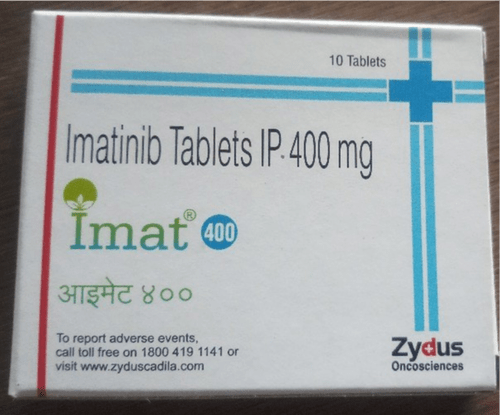
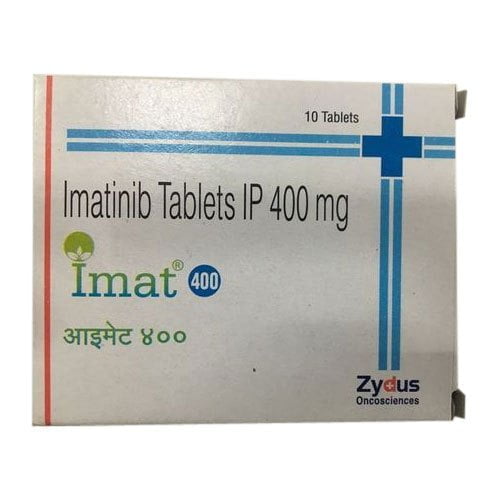

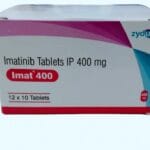
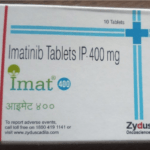
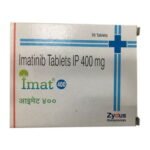

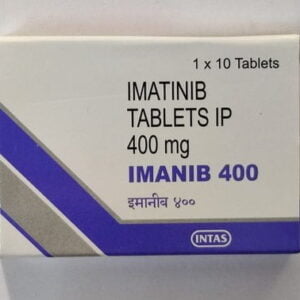
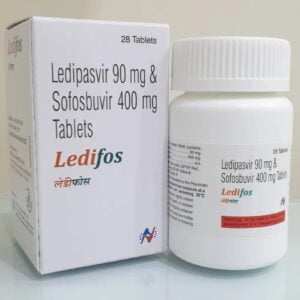

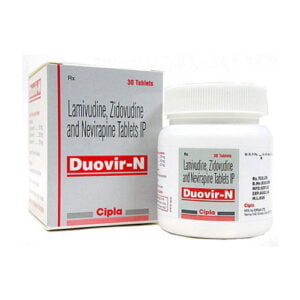
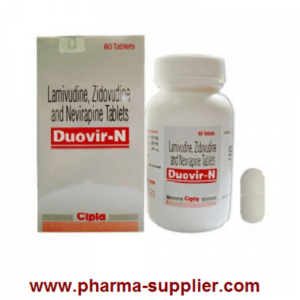
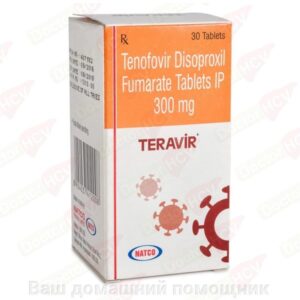
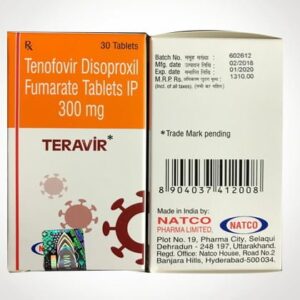
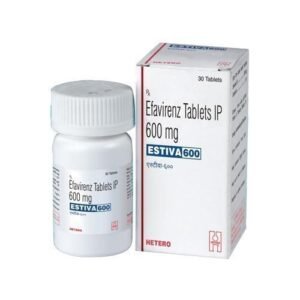

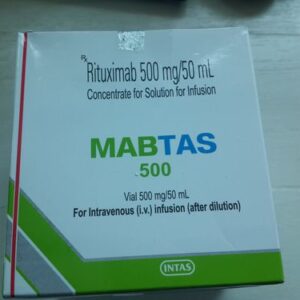
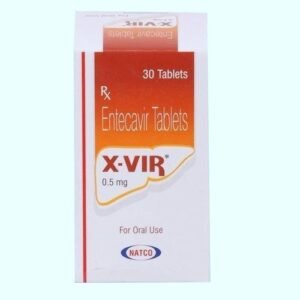
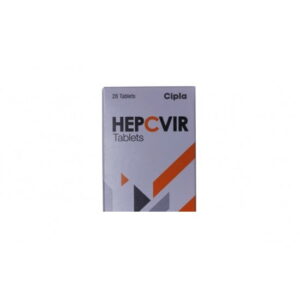
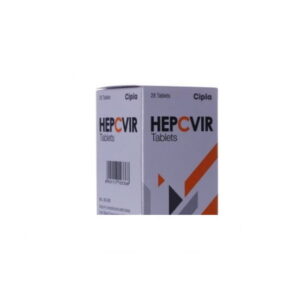

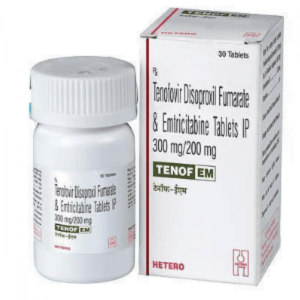
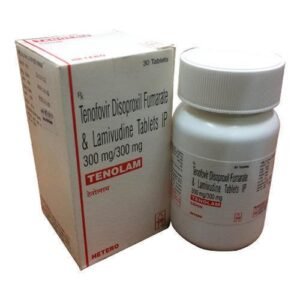
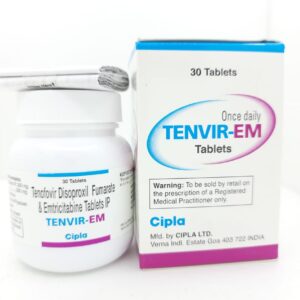
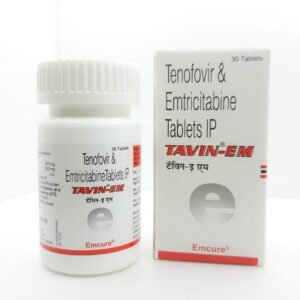
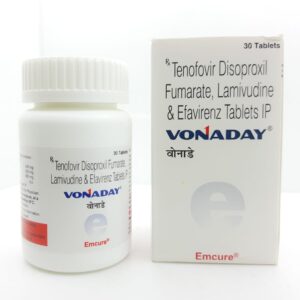
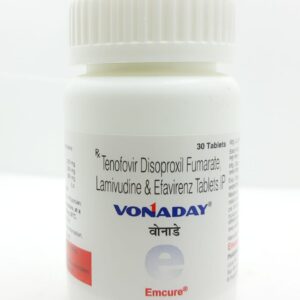

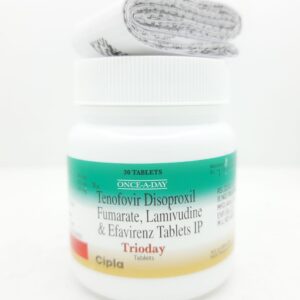
There are no reviews yet.